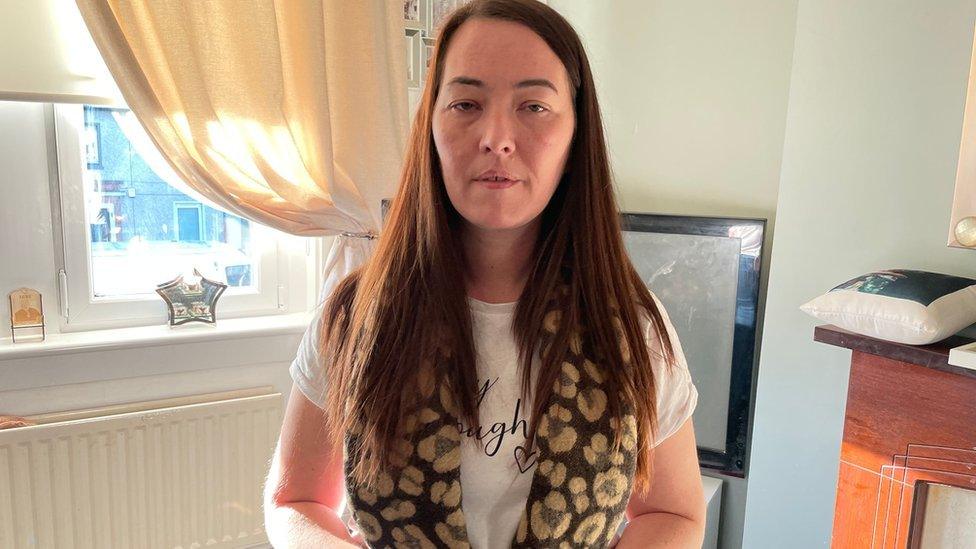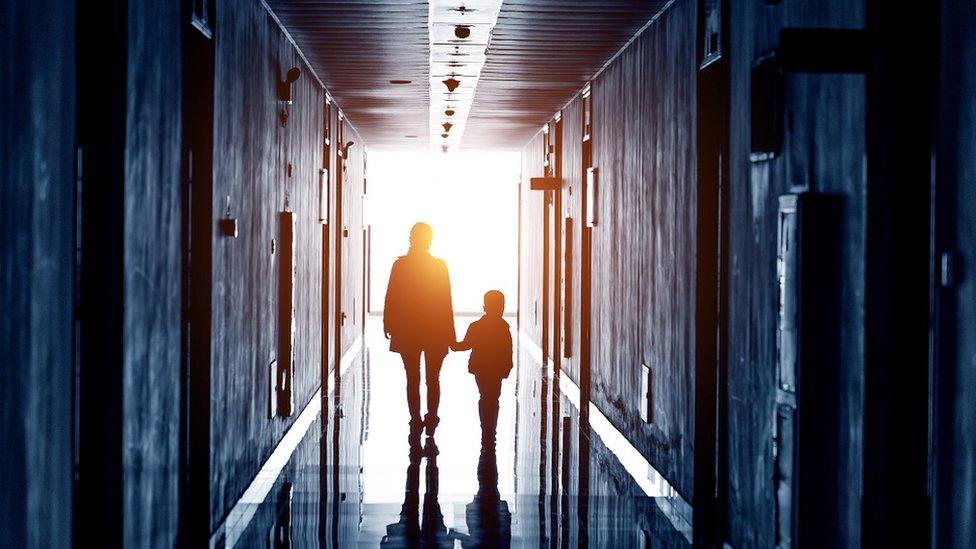Waiting times grow for Scotland's child mental health services
- Published

70% of young people referred to Child and Adolescent Mental Health Services were seen within 18 weeks
The percentage of children who saw a mental health specialist within the Scottish government's target waiting time is at its lowest in over a year.
About 70% of young people were seen by Child and Adolescent Mental Health Services (CAMHS) within 18 weeks by the end of December 2021.
The figure hit a record low in September 2020 at 60.6%.
The Scottish Children's Services Coalition (SCSC) said services were struggling to keep up with demand.
It called for investment in child mental health services to be greatly increased, as the pandemic had exacerbated a mental health crisis.
Last month, the Royal College of Psychiatrists in Scotland called on the Scottish government to outline how it will reach its target of directing 1% of the health budget to CAMHS as part of its post-pandemic NHS recovery plan.
At the time the Scottish government said it had invested £40m to improve CAMHS and clear waiting lists by March 2023.
According to the latest Public Health Scotland report, external, 4,544 children and young people started treatment at CAMHS between October and December last year - an increase of 19.8% on the previous quarter and up 11.1% from 2020.
Of those treated, 70.3% saw a specialist within the Scottish government's 18-week target - a decline on the 78.6% in the previous quarter and 73.1% at the same time in 2020.
A total of 10,021 were referred to CAMHS in this period, compared to 7,882 in the previous quarter and 9,457 in 2020.
One in two of those seen started their treatment within an average of seven weeks.
Long waits 'unacceptable'
Out of 14 health boards, eight failed to meet the Scottish government target of treating a child within 18 weeks of their referral.
And a total of 1,570 children and young people had been waiting over a year for treatment at the end of 2021. In March last year, this figure was 2,012.
Minister for Mental Health Kevin Stewart said the Scottish government had invested £4.25m in 2022 to tackle backlogs in CAMHS care.
He said since 2007 CAMHS staffing had increased by more than 80% and that posts continued to be created.
Mr Stewart added: "Long waits for treatment are unacceptable and we remain committed to meet the standard that 90% of patients begin treatment within 18 weeks of referral."
However the Scottish Conservative's mental health spokesman Craig Hoy said the mental health crisis among young people had "spiralled out of control" and that waiting times were unacceptable.
He said: "We continue to hear a lot of warm words from SNP Ministers on supporting young people with mental health issues, but far too little in terms of urgent action.
"SNP ministers must urgently outline plans to increase investment in frontline mental health services and ensure that young people who need treatment and support receive it as quickly as possible."
'Impossible to manage'
As well as more money for services, the SCSC wants greater workforce planning and more focus on expanding prevention and early intervention services so that less children need to be referred to "costly" specialists.
A spokesperson for SCSC said: "For some time now, we have raised concerns over a potential lost generation of vulnerable children and young people, whose mental health is being impacted even further by the pandemic.
"While we welcome the attention that the Scottish government has given to date on this vital issue, a lack of resources and lack of staff mean it's becoming an impossible situation to manage.
"There must be a radical transformation of our mental health services, investing in specialist services and with a focus on preventing such problems arising in the first place and intervening early."
Meanwhile, the Scottish Association for Mental Health (SAMH) said that school counselling services are also struggling to keep up with demand in parts of the country.
The Scottish government spends £16m a year to fund its 2018 commitment to ensure every secondary pupil has access to counselling.
SAMH said the money had made a big difference but has warned that in some areas there still are not enough counsellors.
Related topics
- Published27 January 2022

- Published10 February 2022
